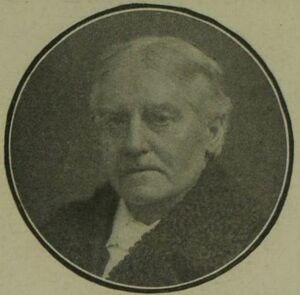Difference between revisions of "Stewart Headlam"
m (Text replacement - "|twitter= " to "") |
(unstub) |
||
| (One intermediate revision by the same user not shown) | |||
| Line 2: | Line 2: | ||
|wikipedia=https://en.wikipedia.org/wiki/Stewart_Headlam | |wikipedia=https://en.wikipedia.org/wiki/Stewart_Headlam | ||
|spartacus=http://spartacus-educational.com/REheadlam.htm | |spartacus=http://spartacus-educational.com/REheadlam.htm | ||
| − | |image= | + | |image=Stewart Headlam.jpg |
| + | |alma_mater=Eton College,Cambridge University | ||
|birth_date=12 January 1847 | |birth_date=12 January 1847 | ||
|death_date=18 November 1924 | |death_date=18 November 1924 | ||
| Line 11: | Line 12: | ||
|nationality=English | |nationality=English | ||
|employment= | |employment= | ||
| + | |description=A pioneer and publicist of [[Christian socialism]]. | ||
}} | }} | ||
| + | '''Stewart Duckworth Headlam''' was an English [[Anglicanism|Anglican]] priest who was involved in frequent controversy in the final decades of the nineteenth century. Headlam was a pioneer and publicist of [[Christian socialism]], on which he wrote a pamphlet for the [[Fabian Society]], and a supporter of [[Georgism]]. He is noted for his role as the founder and warden of the [[Guild of St Matthew]] and for helping to bail [[Oscar Wilde]] from prison at the time of his trials. | ||
| + | |||
| + | ==Fabian Society== | ||
| + | In December 1886, Headlam joined the [[Fabian Society]] and for several years served on the society's executive committee. In 1888, he and [[Annie Besant]] were elected to the London School Board as members of Progressive Party, a broad coalition of London liberals, radicals and socialists. In 1902 the Conservative government [[Education Act 1902|abolished school boards across England and transferred their responsibilities to the county councils]]. Although this was a reform designed in large part by his fellow Fabian, [[Sidney Webb]], and endorsed by the Fabian Society, Headlam, like many others on the Left, denounced it as undemocratic. The new Education Act spared the London School Board, but only temporarily. It was also abolished in 1904. Despite his expectation that he would be able run as a Progressive candidate for the London County Council that year and be given a seat on the education committee, the Progressives did not nominate him, perhaps because of pressure from Webb and his allies. It was not until 1907 that he was elected to the council where he continued to be a tireless advocate for working-class children and their teachers. In the same year he published ''The Socialist's Church''. He continued as a political figure for the rest of his life. | ||
| + | |||
{{SMWDocs}} | {{SMWDocs}} | ||
==References== | ==References== | ||
{{reflist}} | {{reflist}} | ||
| − | |||
Latest revision as of 05:26, 6 June 2021
(priest) | |
|---|---|
 | |
| Born | Stewart Duckworth Headlam 12 January 1847 Wavertree, Liverpool |
| Died | 18 November 1924 (Age 77) St Margaret's-on-Thames, Middlesex |
| Nationality | English |
| Alma mater | Eton College, Cambridge University |
A pioneer and publicist of Christian socialism. | |
Stewart Duckworth Headlam was an English Anglican priest who was involved in frequent controversy in the final decades of the nineteenth century. Headlam was a pioneer and publicist of Christian socialism, on which he wrote a pamphlet for the Fabian Society, and a supporter of Georgism. He is noted for his role as the founder and warden of the Guild of St Matthew and for helping to bail Oscar Wilde from prison at the time of his trials.
Fabian Society
In December 1886, Headlam joined the Fabian Society and for several years served on the society's executive committee. In 1888, he and Annie Besant were elected to the London School Board as members of Progressive Party, a broad coalition of London liberals, radicals and socialists. In 1902 the Conservative government abolished school boards across England and transferred their responsibilities to the county councils. Although this was a reform designed in large part by his fellow Fabian, Sidney Webb, and endorsed by the Fabian Society, Headlam, like many others on the Left, denounced it as undemocratic. The new Education Act spared the London School Board, but only temporarily. It was also abolished in 1904. Despite his expectation that he would be able run as a Progressive candidate for the London County Council that year and be given a seat on the education committee, the Progressives did not nominate him, perhaps because of pressure from Webb and his allies. It was not until 1907 that he was elected to the council where he continued to be a tireless advocate for working-class children and their teachers. In the same year he published The Socialist's Church. He continued as a political figure for the rest of his life.